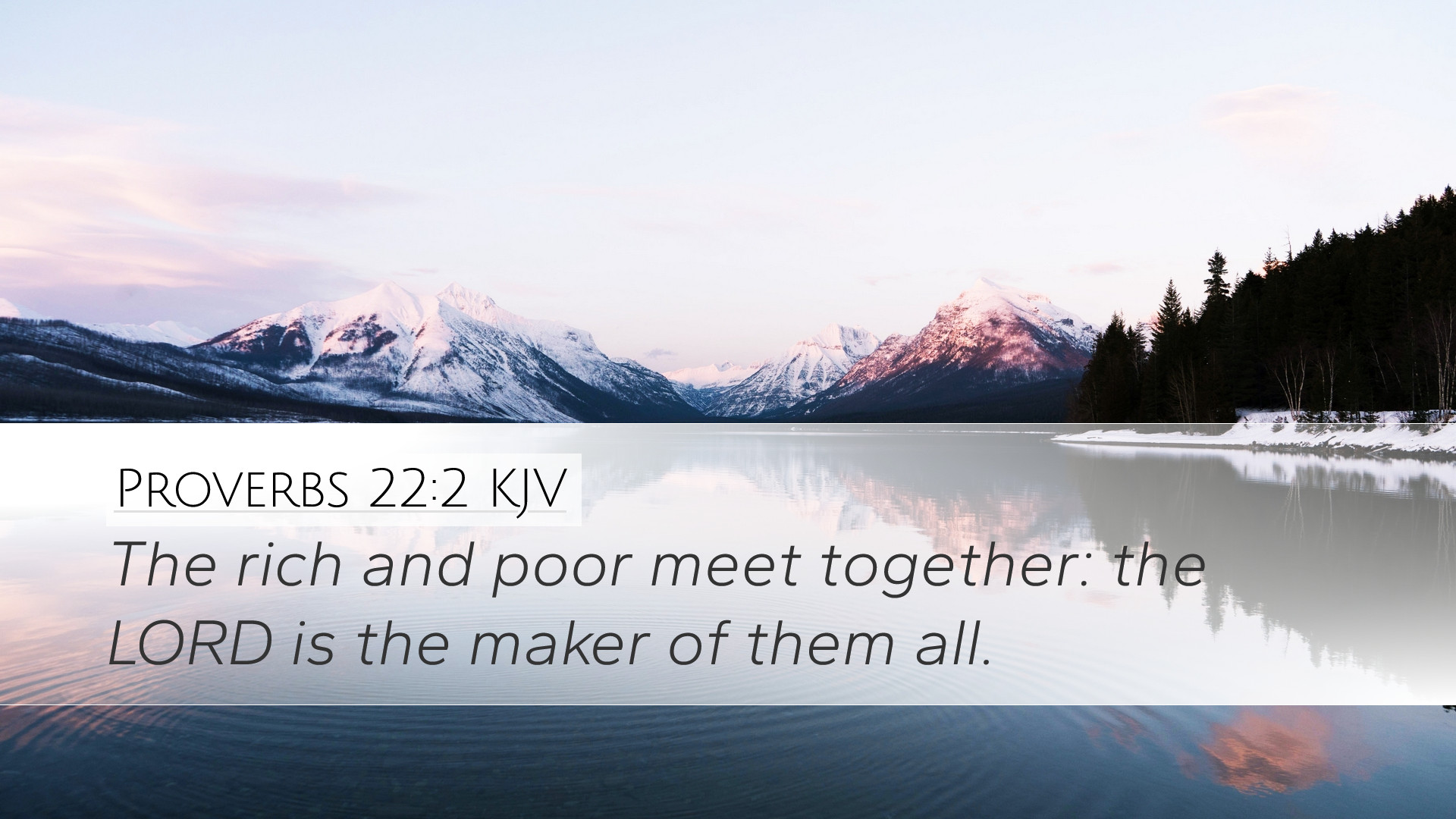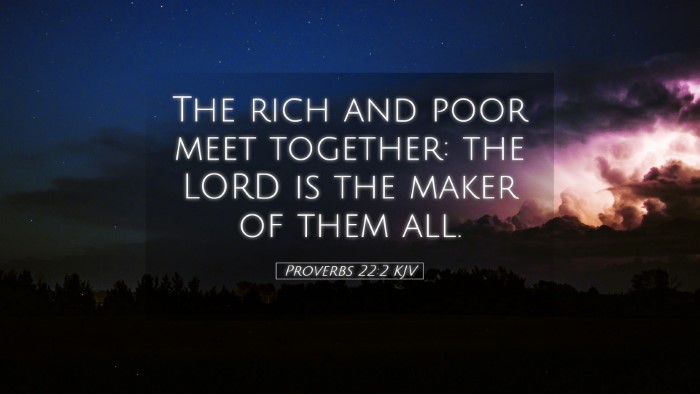Commentary on Proverbs 22:2
Bible Verse: "The rich and poor meet together: the Lord is the maker of them all." (Proverbs 22:2)
Introduction
This verse from Proverbs highlights a profound theological truth: regardless of social or economic standing, all human beings are created by God. The implications of this truth ripple through various aspects of life, including ethics, community dynamics, and personal spirituality.
Exegesis of Proverbs 22:2
The phrase "The rich and poor meet together" serves to illustrate the universal nature of humanity. Both classes, rich and poor, exist under the sovereign authority of God who is the "maker" of all.
- Rich and Poor: The use of "rich" and "poor" encompasses all individuals, signifying that socioeconomic status does not separate humanity in the eyes of God.
- Meeting Together: This implies a level of equality and mutual interaction among people, necessitating a community where both statuses must coexist.
- The Lord as Maker: The verse concludes with a powerful affirmation of God's authority and creative power over all humanity, highlighting that both rich and poor bear the divine image.
Insights from Commentaries
Matthew Henry's Commentary
Matthew Henry offers insights on the nature of humanity, emphasizing that both rich and poor are crafted by God for His purposes. He illustrates that wealth can provide comfort, but it does not confer spiritual superiority. In addition, he posits that God’s impartiality should inspire believers to act with humility and compassion toward all individuals, regardless of their economic status.
Albert Barnes' Notes on the Bible
Albert Barnes highlights the social implications of this verse. He notes that God’s creation of both rich and poor fosters a sense of unity within diversity. Each person's value is intrinsic and not determined by societal metrics of worth. Barnes further suggests that this understanding encourages the faithful to advocate for justice and equality, supporting the needy and recognizing the shared humanity in all.
Adam Clarke's Commentary
Adam Clarke addresses the spiritual aspect of the verse, reinforcing the idea that God knows and cares for all—be they in wealth or poverty. Clarke emphasizes that the Lord's capacity and designs extend to everyone, which necessitates humility in those who are blessed with riches. He reminds readers of the biblical call to assist the poor and the importance of recognizing that both wealth and poverty can serve God’s overarching plans.
Theological Implications
The verse presents several theological implications worthy of consideration:
- Divine Sovereignty: God's sovereignty transcends human distinctions of wealth, bringing a unity that calls for a cohesive community.
- Human Equality: The acknowledgment of shared humanity aligns with the gospel's message of equality, where all believers are equal-footed before God.
- Call to Action: Understanding our interconnectedness under God should propel believers to engage in acts of justice, mercy, and compassion, reflecting God's love across socioeconomic boundaries.
Practical Applications
This verse has potent applications for church communities and individual believers:
- Community Engagement: Churches should foster environments that encourage rich and poor to meet and interact, serving as a training ground for humility and mutual respect.
- Compassionate Action: Believers are challenged to seek out and assist those in need, reflecting God's care and compassion to the marginalized.
- Personal Reflection: Individuals should assess their attitudes towards wealth and poverty, ensuring they align with a biblical understanding of value and dignity irrespective of economic status.
Conclusion
Proverbs 22:2 encapsulates a profound truth: the divine creation of both rich and poor. As Christians reflect on this verse, it acts as a reminder of God’s sovereignty and a call toward genuine community relationships based on mutual respect, compassion, and justice. It urges believers to live out their faith in a manner that transcends societal divisions, fully recognizing the divine image present in every individual.


